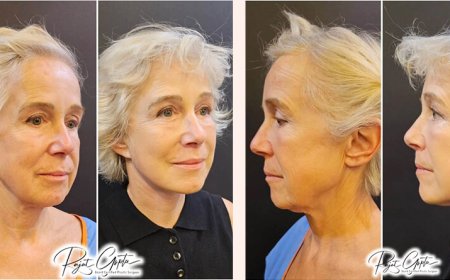What to Eat Before and After Your Tummy Tuck Surgery
Preparing for a tummy tuck isnt just about scheduling your procedure and clearing your calendarit also means fueling your body with the right nutrition before and after surgery. What you eat can significantly impact your healing time, reduce inflammation, and help you get the best possible results.
Lets dive into what your pre- and post-op plate should look like, and what foods you should steer clear of for a smooth recovery.
Why Nutrition Matters for a Tummy Tuck
A tummy tuck is a major surgical procedure, and your body needs essential nutrients to:
-
Build new tissue
-
Fight off infection
-
Reduce swelling
-
Minimize scarring
-
Boost energy levels during recovery
Making mindful food choices isnt just a good ideaits a key part of your healing strategy.
What to EatBefore Your Tummy Tuck
Start optimizing your diet at least 2 weeks before surgery:
Protein-Rich Foods
Protein is the foundation of tissue repair. Include:
-
Lean meats (chicken, turkey, fish)
-
Eggs
-
Greek yogurt
-
Tofu and legumes
Antioxidant-Rich Fruits & Veggies
These help reduce inflammation and support immunity:
-
Berries, oranges, spinach, kale, bell peppers, and carrot
Whole Grains
They provide long-lasting energy and support digestion:
-
Brown rice, oats, whole wheat bread, quinoa
Healthy Fats
Support hormone balance and reduce inflammation:
-
Avocados, nuts, seeds, olive oil, and fatty fish
Hydration
Drink plenty of water to stay hydratedthis helps circulation and keeps your skin and tissues healthy.
What to AvoidBefore Surgery
Alcohol and Smoking
Both impair healing and increase surgical risk. Quit smoking at least 4 weeks before and after surgery.
Processed Foods
Fast food, packaged snacks, and sugary treats contribute to inflammation and slow recovery.
High-Sodium Foods
Salt causes bloating and water retentionavoid it for at least a week before surgery.
Herbal Supplements (unless cleared)
Some can thin the blood or interfere with anesthesia. Always check with your surgeon before taking anything new.
What to EatAfter Your Tummy Tuck
Your body is working overtime to healnourish it accordingly:
Continue a Protein-Focused Diet
Aim for at least 6080g of protein per day to aid tissue regeneration.
Eat Easy-to-Digest Foods
You may feel bloated or sluggish after anesthesia. Try:
-
Smoothies
-
Soup and broths
-
Mashed sweet potatoes
-
Steamed vegetables
Fiber to Prevent Constipation
Pain meds and inactivity can slow your gut. Include:
-
Oats
-
Chia seeds
-
Leafy greens
-
Prunes
Zinc & Vitamin C
Boost collagen production and immune response:
-
Citrus fruits, bell peppers, beef, pumpkin seeds
What to AvoidAfter Surgery
Caffeine (in excess)
It can dehydrate you and interfere with sleep.
Carbonated Drinks
Can cause gas and bloating, making your midsection feel worse post-op.
Highly Processed and Fried Foods
These slow healing and increase inflammation.
Alcohol
Avoid for at least 2 weeks after surgeryit can interfere with medications and slow down your recovery.
Planning for a Tummy Tuck in Sarasota?
Whether you're preparing for your procedure or planning recovery meals, patients seeking a Tummy Tuck Sarasota should understand that diet plays a huge role in both short-term healing and long-term results.
Surgeons performing Tummy Tuck Sarasota ,FL procedures often provide personalized dietary guidance, but the general principles above are a great place to start.
Final Thoughts
Think of your diet as your first prescription. What you feed your body before and after your tummy tuck will impact how quickly you bounce back, how your scars heal, and how long you enjoy your results.








































